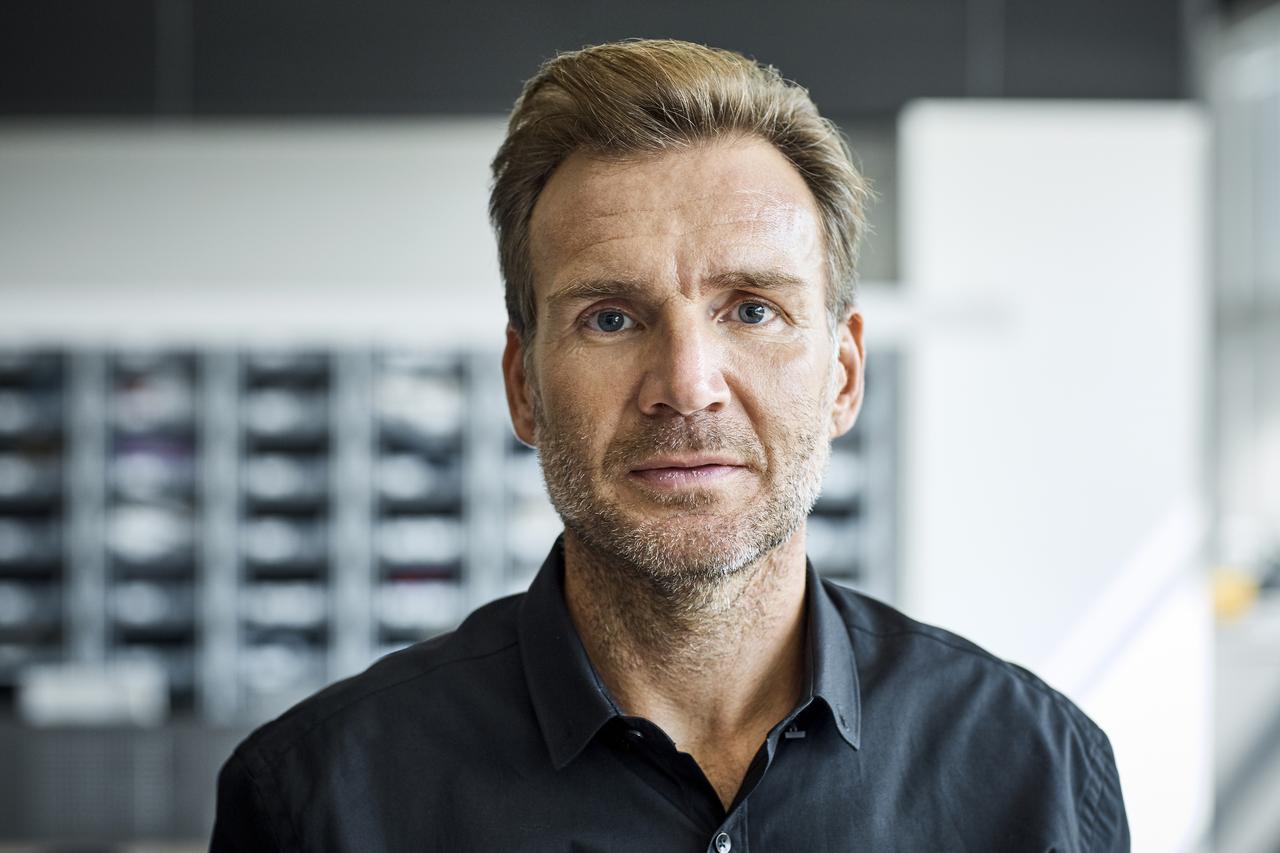- Patients
- Exploring cancer care
- Conditions we treat
- Gastrointestinal Cancer
- Large bowel cancer
What is large bowel cancer?
Chapter 01
What is large bowel cancer?
Large bowel cancer is also called colorectal cancer. This type of cancer usually develops from growths called polyps on the lining of the wall of the large bowel. These growths may become cancerous if undetected.1
Approximately 90% of bowel cancers are a type called an adenocarcinoma. There are other less commonly diagnosed types of cancer that can affect the bowel, including lymphomas and neuroendocrine tumours.2
Make an enquiry
Contact us today to find out how GenesisCare can help you.
It's not clear what can cause large bowel cancer, however there are a number of factors that may increase your risk. The se factors may include:,1,2
- Being over 50 years of age
- Polyps
- Carrying extra weight
- Alcohol consumption
- Smoking tobacco
- Diet
- A high diet in red or processed meats such as ham or salami
- A low fibre diet
- Close family history of bowel cancer, such as a parent, brother or sister
- This risk can increase if they were diagnosed before 55 years of age or if two or more close family members on the same side have had bowel cancer
- Certain inherited genes
- Inflammatory bowel disease
- Crohn’s disease
- Ulcerative colitis
- Having previously been diagnosed with bowel cancer.
Having one or more of these risk factors doesn't mean that you will develop large bowel cancer. If you have any questions or concerns, please speak with your GP or specialist.
People with bowel cancer may not experience any symptoms at all and they only know they have bowel cancer through screening. There are however many people that do have symptoms.1 These symptoms may include:1,2
- Changes in your usual bowel habit (constipation or diarrhoea)
- Changes in how your stools look or their consistency, such as thin bowel movements, mucus in stool
- Feeling like your bowel hasn’t completely emptied your bowel after a bowel movement
- Blood in stools
- Abdominal pain including bloating or cramping
- Anal or rectal pain
- A lump in the anus or rectum
- Unexplained weight loss
- Unexplained fatigue
- Tiredness and/or anaemia (appearing pale, weakness and breathlessness).
Having one or more of these symptoms doesn’t mean you have large bowel cancer, however it's a good idea to have a chat with your GP or specialist if you have any questions or concerns.
Diagnosis
Chapter 02
Diagnosing large bowel cancer
A range of tests may be performed to analyse symptoms, to diagnose bowel cancer, and the disease stage. Following a physical examination which may include an assessment of any abdominal swelling, further tests may include:1,2
- Blood tests
- The aim of testing your blood is. to understand if there any signs of blood loss in your stools, and also to test a low red blood cell count, which is common in people with bowel cancer
- Colonoscopy
- This is the primary test using to check for bowel cancer
- This procedure is usually done under sedation in a hospital day surgery clinic
- During a colonoscopy your doctor will insert a flexible tube with a camera on the end through your anus and into your colon
- A colonoscopy requires complete emptying of the bowel and specific preparation (your doctor will let you know how to do this)
- Biopsy
- Involves the removal of a piece of tissue from the bowel wall, that is then analysed for cancer
- A biopsy is usually taken during a colonoscopy
- Imaging scans
- X-ray, computed tomography (CT) scan, ultrasound scan, magnetic resonance imaging (MRI) scan or positron emission tomography (PET) scan
Treatment options
Chapter 03
Treatment options for large bowel cancer
The treatment options recommended for large bowel cancer will usually depend upon a few different factors including general health, age, type, and the disease stage.1,2
- Radiation therapy
- Radiation therapy is generally in combination with surgery either before surgery to reduce the size of the cancer needed to be removed, or after surgery to destroy any remaining cancer cells
- Radiation therapy is also sometimes used in combination with chemotherapy
- Chemotherapy
- Chemotherapy is an approach to cancer therapy which involves the administration of medicine, usually orally or by injection, which is intended to kill cancer cells or minimise their growth and spread
- Chemotherapy can be used in conjunction with radiation therapy and before and/or after surgery
- Surgery
- The type of surgery you will have will depend on where in the bowel the cancer is, as well as your preferences
- Surgery may be suggested for either early or advanced bowel cancer
- Surgery is done under general anaesthetic and the recovery time will vary depending on the type of surgery you need
- Your doctor is the best person talk to about the specific surgery required
- Targeted therapy
- Targeted therapy refers to treatment with drugs that are designed to specifically attack cancer cells without harming normal cells
- These types of drugs affect the way that cancer cells grow, divide, repair themselves or interact with other cells
- Immunotherapy
- Immunotherapy is a type of treatment that is intended to help your own immune system fight cancer; it is a type of targeted therapy
- There are different types of immunotherapy for cancer that work in different ways
Side effects
Chapter 04
Potential side effects
Side effects of cancer treatment
All cancer treatments may have side effects. The type and severity of side effects will vary between individuals. You can ask your doctor for detailed information about the side effects which you may experience with any treatment recommended for you.
Recommendations to help you stay well during treatment1,3,4
- Changes to digestion, as well as bowel habits during treatment can be common
- Eating healthy food can help with both treatment and managing side effects
- Eating small but frequent meals instead of three big meals
- A dietitian may help to give you advice on the types of foods to include or remove from your diet
- Drink lots of water
- Reach out to support groups and others who have had cancer treatment
- Speak to your doctor about incorporating some gentle exercise into your weekly routine
- It is important to acknowledge when you are fatigued and rest when you need to
- Ask for and accept help from family, friends and neighbours
- Be open with employers about your treatment and discuss flexible working options if you need them
Treatment with GenesisCare
Chapter 05
Learn more about patient care at GenesisCare
A cancer diagnosis can be life changing. You may experience a wave of emotions. It’s natural to feel disbelief, anxiety, sadness, anger and loneliness.4[1] Our care team aim to know your name and to get to know who you are as a person. Your nursing team and oncology team are here to support you before, during and after your cancer treatment. We are here to guide you and to help get the support you need which may include a psychologist, exercise physiologist, physiotherapist, and dietitian.
If you have any enquiries about our centres or services, please contact your local centre team. View a list of our centres here.
Helpful services
Chapter 06
Other helpful services
Further bowel cancer information, resources, and support services are available to help assist you during your cancer journey. These may include:
Cancer Council
T: 13 11 20
cancer.org.au
Gastroenterological Society of Australia
T: 1300 766176
gesa.org.au
Bowel Cancer Australia
T: 1800 555494
bowelcanceraustralia.org
GI Cancer Institute
T: 1300 666 769
gicancer.org.au
Read Next

Page
Our centres
In Australia, we have more than 40 oncology centres in metro and regional Queensland, New South Wales, Victoria, South Australia, and Western Australia.

Page
Our doctors
Our experienced, specialised doctors offer bespoke, dedicated care aiming to provide the best possible clinical outcomes.

Treatment
Radiation therapy
Radiation therapy uses high energy X-rays or other particles to treat cancer and can be used at all stages.
Disclaimer
This website is provided for information purposes only. Nothing on this website is intended to be used as medical advice or, to diagnose, treat, cure, or prevent any disease. It should not be used as a substitute for your own health professional's advice.
Any medical procedure or treatment involving the use of radiation carries risks, including skin irritation and associated pain. Before proceeding with treatment, you should discuss the risks and benefits of the treatment with an appropriately qualified health practitioner. Individual treatment outcomes and experiences will vary.
- Cancer Council. Understanding Bowel Cancer. Available at: https://www.cancercouncil.com.au/wp-content/uploads/2023/03/Understanding-Bowel-Cancer-2023.pdf (accessed February 2024).
- Cancer Council. Types of bowel cancer. Available at: https://www.cancer.org.au/cancer-information/types-of-cancer/bowel-cancer (accessed February 2024).
- Cancer Council. Cancer, Work and You. Available at: https://www.cancercouncil.com.au/wp-content/uploads/2023/06/Cancer-Work-and-You-2023.pdf (accessed February 2024).
- Cancer Council. Understanding Small Bowel Cancer. A guide for people affected by cancer. Available at: https://www.cancercouncil.com.au/wp-content/uploads/2021/03/Understanding-Small-Bowel-Cancer-2021.pdf (accessed February 2024).

